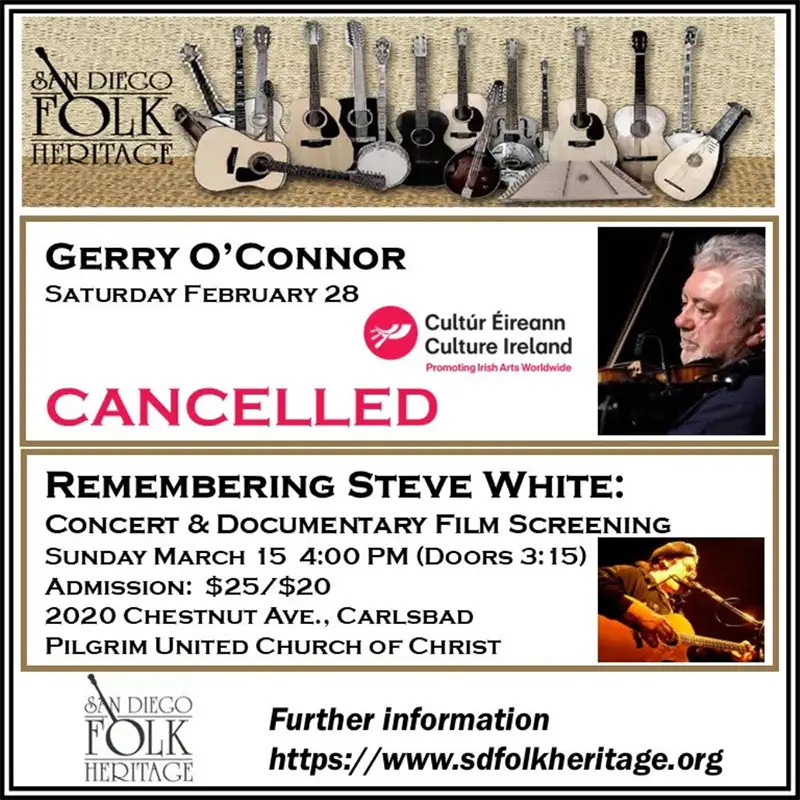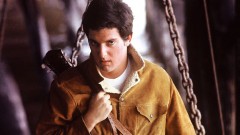Yesterday And Today
Remembering P.F. Sloan
Singer-songwriter, poet, and storyteller, P.F. Sloan died last month in Los Angeles at the age of 70. The cause of death has been reported as pancreatic cancer. He was a songwriter who wrote many hits for other artists, but who is best defined by his #1 hit song, “Eve of Destruction,” which was recorded by folk singer Barry McGuire with the Wrecking Crew, in a rushed 20-minute live session. The song proved to be an international success. Today it is considered a classic of the protest era, which still rings true. Its words reverberate from half a century ago and still seem as though they could have been written based today.
   The eastern world it is exploding
   Violence flarin’, bullets loadin’
   You’re old enough to kill but not for votin’
   You don’t believe in war but whats that gun you’re totin’?
   And even the Jordan River has bodies floatin’
Sloan and McGuire continued to perform and re-record the song with revised lyrics and varied emphasis depending on the times. They reported to me personally that they still receive letters of the song’s impact from young people all over the globe. The song, which included the lyrics “you’re old enough to kill, but not for voting” successfully became the rally cry for a movement in the late ’60s to lower the voting age in the United States from 21 to 18 years old through the passage of the 21st Amendment of the U.S. Constitution. Sloan was 19 when he wrote the song.
“Eve of Destruction” was written directly under the influence of the success of Bob Dylan and the protest movement, which had begun in the early ’60s. By 1965, Dylan left the form behind in favor of rock. However, “Eve of Destruction” so directly addressed the country’s involvement in Vietnam and the continuing civil rights movement, it became an anthem of the times. In his recently published book, What’s the Matter With Me?, Sloan wrote, “I remember the night I wrote ‘Eve of Destruction.’ It was the night P.F. Sloan was born–the emergence of a high form of consciousness.”
The song, which in recent years has suffered from some critical revisionism relating to its importance, with critics calling it “overwrought,” remains lyrically timeless, powerful, and distinctive. It was Sloan one-upping Dylan–more than anyone expected from this 19-year-old upstart. It’s not hard to imagine Dylan kicking himself for not writing the song.
For Sloan though, “Eve of Destruction” was only the beginning. His versatility showed up in diverse and risky career moves for the next few decades. He often eschewed commercial success in favor of artistic and spiritual growth. He was always in search of the song, the story, the poetic insight. In the wake of “Eve of Destruction,” he became a one-man Brill Building, penning hits songs like “Secret Agent Man” for Johnny Rivers, “Let Me Be” for the Turtles, “Where Were You When I Needed You” for the Grassroots, and other hit songs for the Fifth Dimension, Three Dog Night, and others. But, no song ever approached the importance, durability, and flexibility of “Eve of Destruction.” Since the late 1970s, it has been a favorite of many punk rock bands, including the Dickies, D.O.A., and the Pouges.
As his songwriting career began to fade in the late ’60s, Sloan began a battle with mental and physical illness. He gave the impression of a mysterious recluse much like Bob Dylan during his post motorcycle accident period. Through the years though, Sloan reemerged for independent record releases and a brief tour. In 2006, he released Sail Over, a strong solo album with the support of Frank Black, Felix Cavaliere, Lucinda Williams, and Buddy Miller, produced by Jon Tiven. Last year he published a memoir, What’s the Matter with Me?, which he followed with book tours and Q&As with fans. He also released a concept album last year, featuring songs about Beethoven, aptly titled, My Beethoven.
I was honored to spend some casual time with Sloan, most recently last summer when he showed up at a now-rare Barry McGuire show at the Coffee Gallery Backstage in Altadena, California. Complete with a video documentarian following him, Sloan was open and easy to talk with, especially about spirituality and his music. He appeared at the show without publicity in order to support his old frieend. McGuire was in the midst of deciding to retire from touring.
Together, with former Byrd John York, they ran through a series of songs that helped to define the mid-to-late 1960s. With their only rehearsal at sound check, they were the most glorious garage band in recent history. Sloan was wearing shades throughout the set and gave it his all, singing songs like “Sins of a Family” and “Child of Our Times” as though they had been written yesterday. He told stories–perhaps a few tall tales, others completely true–but as he performed, he expertly displayed the quintessential singer-songwriter that he was: proud of his legacy and ready to continue on down his own unique musical road. That his journey came to such an abrupt end with the recent cancer diagnosis, is reason enough for any music lover to mourn.
But, for an artist like Sloan, the world was about constant discovery, redemption, and new birth. His lyrics in “Child of Our Times” say it best, from an artist who looked at life as it is and saw its rewards:
 Every minute you’re alive
   You’re that much closer to death
   So try to make the most of
   Each precious breath.
Reprinted with permission from No Depression.









